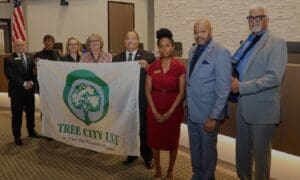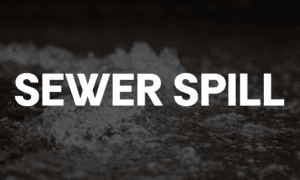Unincorporated property owners will be getting their stormwater bills this year after all. Originally set to bill in June, they were mailed last week.
The process had been on hold since the summer because of the hope that the countywide core infrastructure sales tax would be approved in November, but it failed at the polls. County commissioners had pledged that if the tax was approved, they would stop collecting the annual stormwater fees for four years.
Since the levy failed, the county has to move forward with its original plan for funding stormwater improvements, and that plan centers on the county’s stormwater utility, according to County Administrator Steve Rapson.
The new stormwater bills will take into account new stormwater credits devised after input from the public, so many residents will find a reduced bill from what they were initially charged last year, Rapson said. Other property owners may find they need to petition the county for certain stormwater credits to lower their bills, Rapson confirmed.
Though this year’s bills were delayed significantly, next year’s will not be delayed and as such it will go out in late June, Rapson said.
Also, the 10 to 12 percent of property owners who have not paid their 2012 bill yet will face an interest penalty as well on top of that bill and the new 2013 bill as well, he added.
Rapson said he felt with all the public meetings that were hosted by the county this year on the stormwater fee that residents are much better informed as to why the county needs the money to address critical infrastructure.
While the ideal preference would have been to have the $16.3 million in stormwater projects funded by the sales tax, the good news is that much of the groundwork has been done, Rapson said.
“The good thing about it is we have a definite list and approach, and we don’t have to go through the steps of figuring out what to do,” Rapson said. “All that painful work has been done and now we can get down to the business of actually starting to solve some of these problems.”
As for funding the projects, that’s a bit trickier. The goal will be to address the higher-priority projects involving flooding and safety, then looking at projects that address “immediate needs” and others designated as “needing replacement soon,” Rapson explained.
The flooding/safety related projects “obviously would have a higher priority,” Rapson said, noting they had a combined price tag of $2.9 million or so.
The county could look into doing a revenue bond or a loan from the general fund to kick-start the projects, Rapson said. A more detailed discussion is expected during the commission’s retreat in March or April, Rapson said.
A general fund loan would need to be repaid because the county will not use spending from the general fund on the projects, Rapson added. The county’s stormwater utility is designed to work in the unincorporated county alone, as the cities of Peachtree City and Fayetteville have already instituted their own stormwater utilities.
If a revenue bond were selected, the bank would want to see some proof that the revenue would sustain repayment of the bond, Rapson said.
“Most banks want to see a trend, and it’s hard to have one year and one billing as a trend,” Rapson said, adding that no such discussions have taken place with banks.











Leave a Comment
You must be logged in to post a comment.